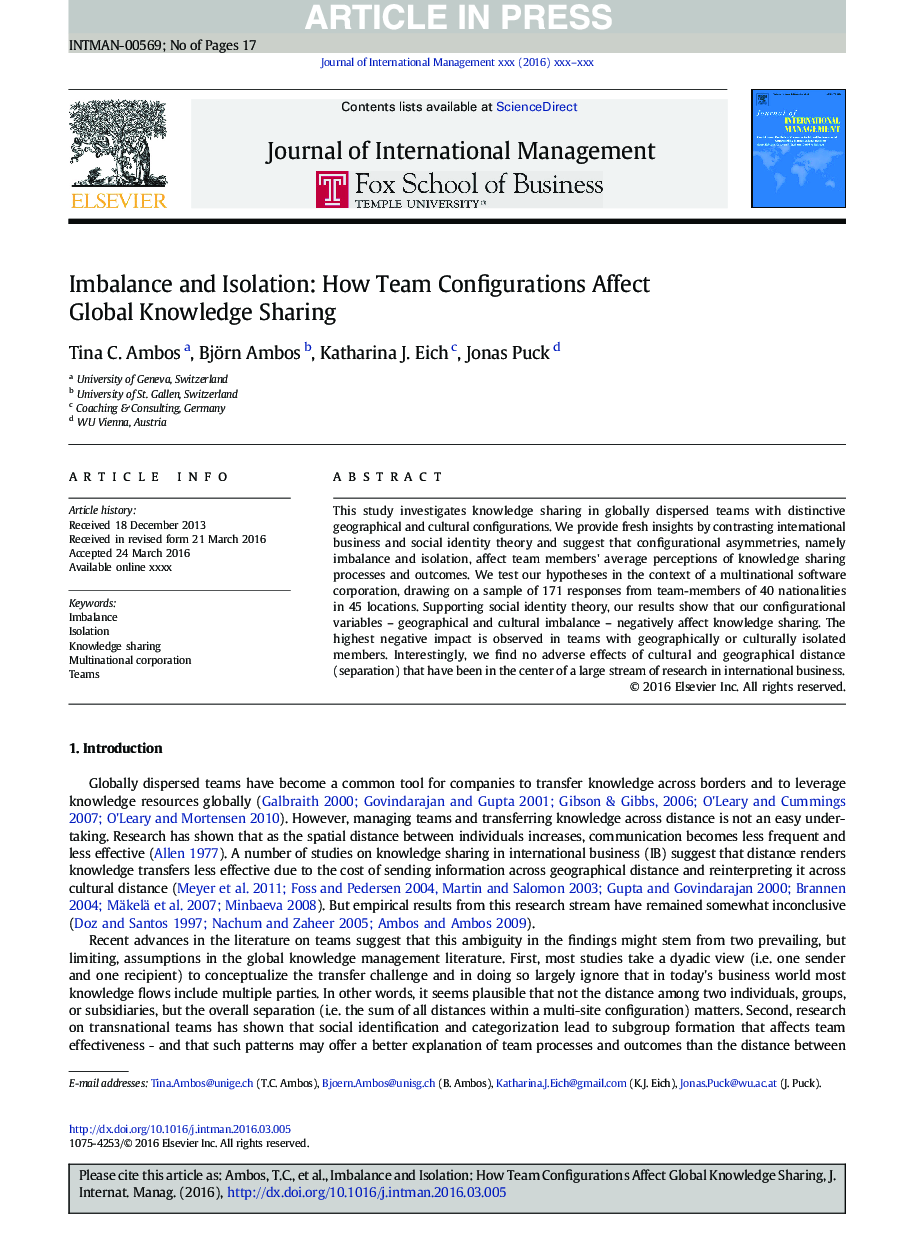| Article ID | Journal | Published Year | Pages | File Type |
|---|---|---|---|---|
| 5110128 | Journal of International Management | 2016 | 17 Pages |
Abstract
This study investigates knowledge sharing in globally dispersed teams with distinctive geographical and cultural configurations. We provide fresh insights by contrasting international business and social identity theory and suggest that configurational asymmetries, namely imbalance and isolation, affect team members' average perceptions of knowledge sharing processes and outcomes. We test our hypotheses in the context of a multinational software corporation, drawing on a sample of 171 responses from team-members of 40 nationalities in 45 locations. Supporting social identity theory, our results show that our configurational variables - geographical and cultural imbalance - negatively affect knowledge sharing. The highest negative impact is observed in teams with geographically or culturally isolated members. Interestingly, we find no adverse effects of cultural and geographical distance (separation) that have been in the center of a large stream of research in international business.
Related Topics
Social Sciences and Humanities
Business, Management and Accounting
Business and International Management
Authors
Tina C. Ambos, Björn Ambos, Katharina J. Eich, Jonas Puck,
